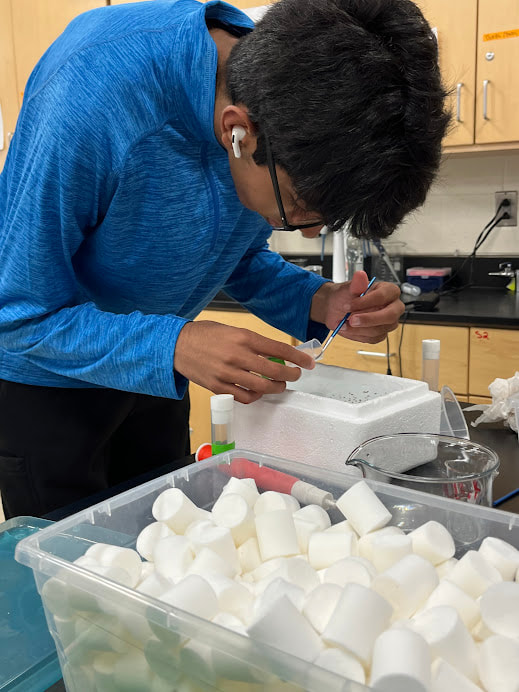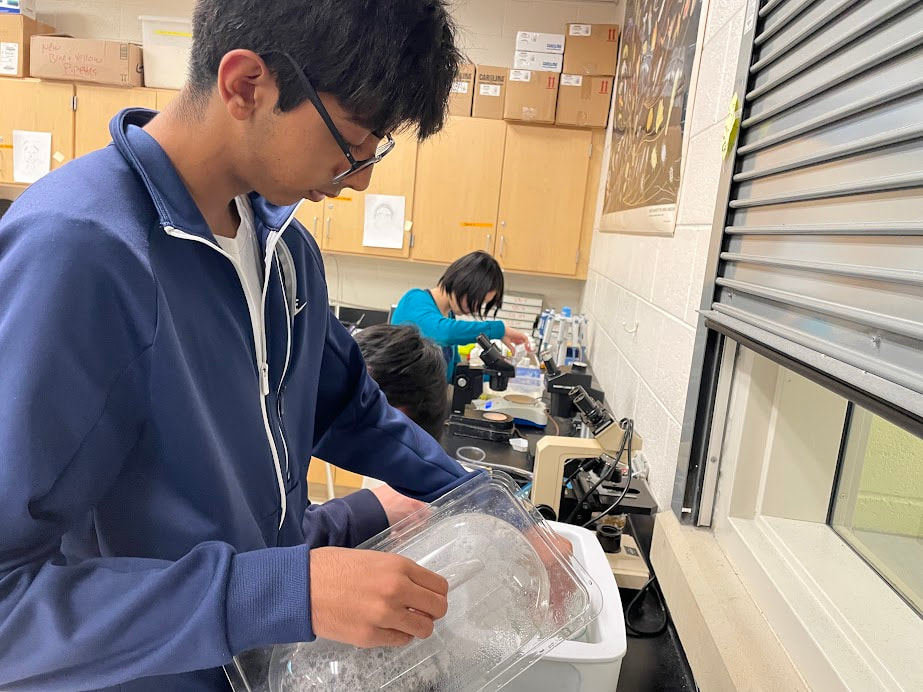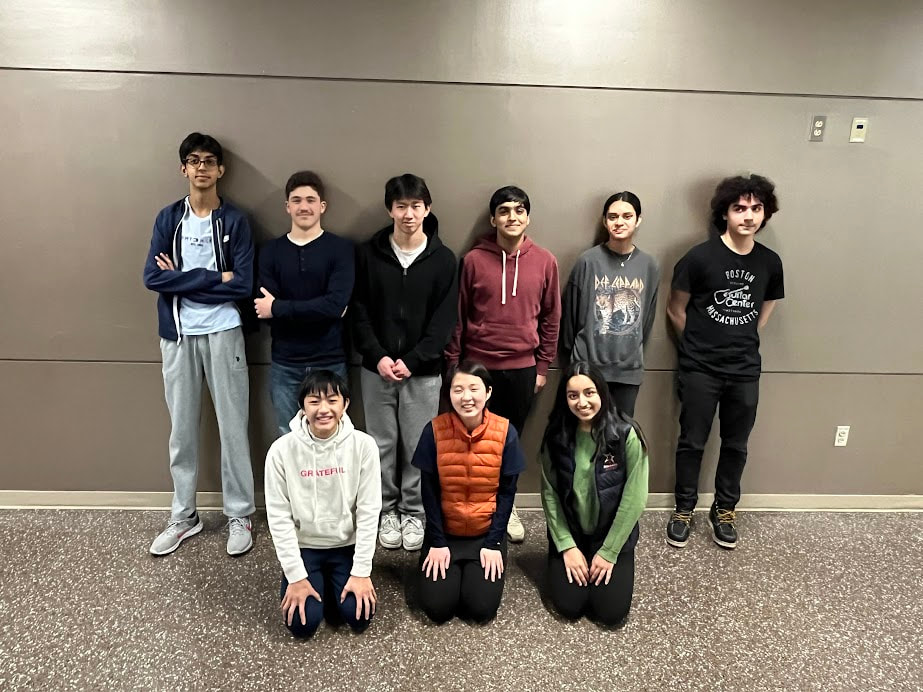|
The symposium is less than two weeks away and it is time to reflect on the work we have accomplished during the past 3 months in the lab! As a student who spends large amounts of time in front of a technological screen, I can relate to the concerns shared by many individuals about the effects of blue light on our health. With the COVID-19 pandemic accelerating our dependence on technology, understanding how our screen time can affect our well-being is becoming more critical than ever. With this in mind, with my independent project, I decided to dive deeper and investigate the long-term impact of blue light on memory in adults. The research topic has implications for students and adults who spend countless hours in front of screens all day.  Specifically, in my experiment, I exposed fruit flies to different amounts of blue light and then quantified how much of the fruit flies' memory was intact. I had a control (0 hours of light per day), minimal exposure (1 hr), moderate exposure (8hr), and High Exposure (14 hr) vial for my experiment. After exposing the vials to their respective amounts of light throughout the week, it was time to quantify their memory. This was done by training the flies by associating Scent A with a negative reinforcement that they are uncomfortable in (hot water) and another Scent B with room temperature water, a more comfortable environment. If the flies' memory were intact, they would travel towards the scent associated with the room temperature water because they would remember associating Scent A with an uncomfortable environment. The first couple of times I ran this assay, I encountered several challenges. For example, finding the most optimal temperature for the hot water bath, transferring the flies from vial to vial, and making the flies move in the testing chamber were some of the challenges I encountered. Despite this, through perseverance and the help of my friends and instructors, I was able to collect some essential data. Although much more research is needed, my data showed that large amounts of exposure to blue light can harm memory in fruit flies. Furthermore, the effects of blue light on memory were more harmful when the exposure to blue light was in large amounts (10-14 hours). This could suggest that students and adults should limit their exposure to television, computers, and iPhones throughout the day to preserve their cognitive thinking. Even though the data shows promising results, much more remains to discover. For example, in the future, one can research how blue light impacts the F1 generation of flies or how drugs can counter the harmful effects of blue light. In addition, I am thankful to be leaving the program with so many memories created with my friends and instructors. During my first week in the lab, I felt a little uncomfortable, but I soon began to learn more about everyone about me. My peers, instructors, and TA's around me were very affable and helped me create a more profound passion for biology and working in the lab. I want to thank all my peers, the TAs (Keith, Austin, and Jenan), especially Dr.Leystra and Dr.Purdy, for the beautiful experience!
0 Comments
Your comment will be posted after it is approved.
Leave a Reply. |
Archives
April 2024
Categories
All
|


 RSS Feed
RSS Feed